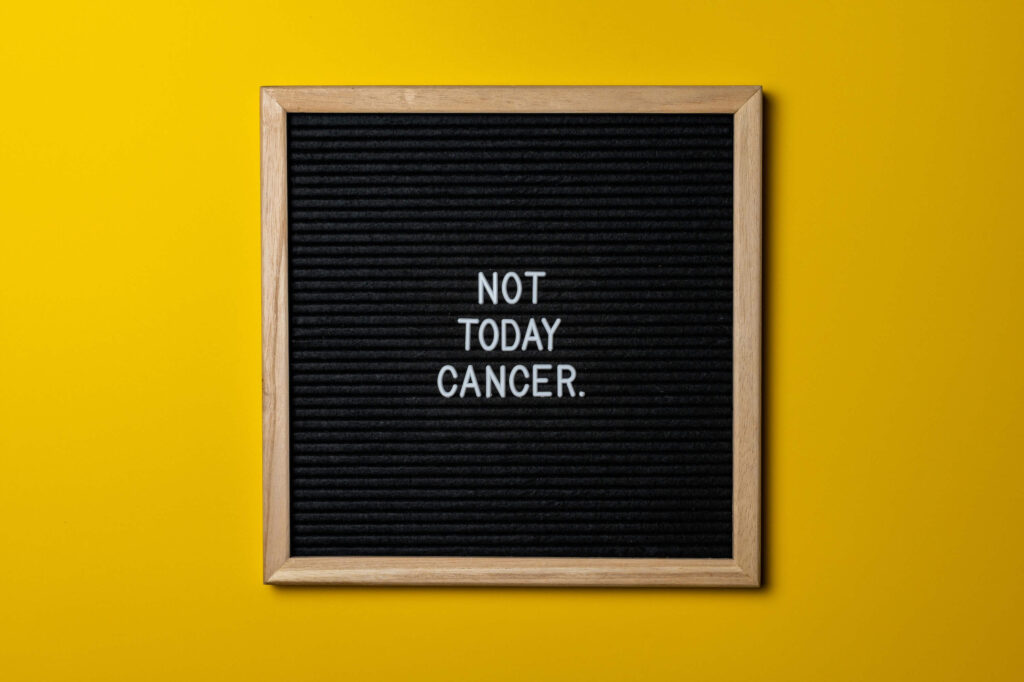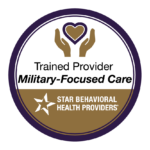Dealing with a New Cancer Diagnosis
“Cancer survivors are blessed with two lives. There is your life before cancer, and your life after. I am here to tell you your second life is going to be so much better than the first.” ~ Hoda Kotb
"It's cancer." Words no one ever wants to hear.
Receiving a cancer diagnosis is one of the toughest pieces of news any of us can ever hear from a doctor. There is no good spin anyone can put on it. No matter what your support system looks like going in, the overwhelming flood of emotions—fear, uncertainty, sadness, confusion, loneliness – it’s all normal. That doesn’t make it any easier though. An estimated 2 million people are diagnosed with some type of cancer every year in the United States. Each and every person’s cancer journey is unique. You’re not alone.
Coping with a New Cancer Diagnosis

When you first receive your diagnosis, it feels like a fire hose of information being thrown at you all at once. Your whole life quickly becomes all about doctors’ appointments, health insurance, and learning about your diagnosis.
Here are some practical ways to prioritize your mental health:
- Get organized. Even if being an organized person isn’t your thing, now is the time to fake it until you make it. You’ll want folders for things like:
-
- Doctor appointments
- Health insurance and billing information
- Lab work and test results
- Medication lists
- Treatment records
- Articles and research
- Legal documents
- Important phone numbers/contact information
- Start a journal to organize your thoughts. Don’t put pressure on yourself to make an entry daily. This can just be on your phone in the notes app or buy a cute journal that you write in when you’re feeling up to it. You make the rules.
- Let people help you. When friends and family offer help, say yes! You would do the same if the shoe were on the other foot. People want to help, let them.
- Stay healthy as long as you feel up to it. Maintaining a healthy lifestyle, including getting enough rest, diet, and exercise, can help your body deal with treatment side effects better.
- Talk to others who have been diagnosed with your type of cancer. Even those who have the greatest support systems can still feel so alone. Knowing that others have gone through and feel the same things as you goes a long way in helping to cope with the complex emotions that your closest loved ones may not understand, no matter how hard they try.
- Get support. We’re here at MUV Counseling in Scottsdale to help with providing therapy for a new cancer diagnosis. Keep reading to learn how we can help.
Counseling can help you get through this...
Counseling can be an invaluable resource for individuals who have been recently diagnosed with cancer. It provides an opportunity to explore the many physical, psychological, and emotional issues that can accompany a cancer diagnosis. Counseling can give you an outside perspective from someone with no vested interest in your situation and you can never be a burden to. The therapeutic process helps you gain clarity on how best to take care of yourself, make informed decisions about your healthcare journey using your values and helps you accept the vulnerability that comes with needing change you didn’t ask for.
When diagnosed with cancer, it’s normal to feel…
Receiving a cancer diagnosis can be a stressful and frightening experience, and often it can result in mental health symptoms such as:
- depression
- anxiety
- difficulty sleeping
- rumination on loss
- grief
- sadness
- agitation
- fear
- blaming
- anger
- negative self-talk
isolation - rejection
- fatigue
- loss of interest
- increased pain
- avoidance
- suicidal thoughts
Many of these symptoms are normal and expected but when they persist for a long period of time or they start to negatively impact daily life. It is important to seek support from friends and family, spiritual support and maybe a professional.

There are treatment options that can help:
Counseling is an important part of dealing with a new cancer diagnosis. At MUV Counseling we offer a variety of counseling modalities that can support you as you navigate a new cancer diagnosis, such as Cognitive Behavioral Therapy (CBT), which focuses on changing unhelpful thoughts and behaviors, Acceptance and Commitment Therapy(ACT) supports value-driven action and Narrative Therapy/Life Story Therapy helps build insight into your story of self and meaning in your life. These three approaches can provide an effective way to process and manage the emotions associated with a new cancer diagnosis.
Types of Counseling
Cognitive behavioral therapy (CBT) helps you understand and manage the thoughts, emotions, and behaviors linked to your cancer diagnosis. We’ll work together to develop coping strategies that reduce anxiety and foster resilience.
Acceptance and commitment therapy (ACT) teaches you how to embrace the emotional waves that accompany your diagnosis while focusing on what truly matters in your life. Rather than fighting difficult emotions, we’ll guide you toward living a meaningful life aligned with your values, despite the uncertainty.
Narrative/Life Story Therapy allows you to reclaim your voice and rewrite your cancer story on your own terms. By reflecting on your life experiences and reframing your journey, you can find strength in your personal narrative and envision a future shaped by hope.
For more details about therapy for a new cancer diagnosis in Scottsdale, call us at 480-300-2635 for a free 15 minute consultation or email us with your questions. If you’re ready to get started, schedule online here.
Frequently Asked Questions about Therapy for a New Cancer Diagnosis:
While each new diagnosis is very different, coping with any of them means dealing with change. Each diagnosis impacts daily functioning including physical health, mobility and health-related habits. Each diagnosis also features periods of acute symptoms followed by time of physical stability. Our therapists offer counseling for:
Diabetes, kidney disease, autoimmune disorders – Lupus, Crohns, Graves Disease, Postural Tachycardia Syndrome (POTS Disease), different types of cancers, Multiple Sclerosis (MS), Parkinson’s, PolyCystic Ovary Syndrome (PCOS)
Receiving a cancer diagnosis can be a life-altering and emotionally overwhelming experience. It’s not uncommon to feel shocked, anxious, or even powerless when faced with the challenges of cancer treatment and the uncertainty of what lies ahead. Counseling is an invaluable resource for individuals recently diagnosed with cancer, offering emotional support during this difficult time.
Counseling provides a safe, compassionate space for clients to process their emotions, fears, and concerns about their diagnosis and treatment. A therapist can guide you through this journey, helping you adjust to the changes in your life while providing tools to manage stress, anxiety, and uncertainty. By exploring your feelings, you gain the emotional clarity needed to navigate your cancer journey with resilience.
Additionally, counseling helps clients develop coping strategies tailored to their specific needs, empowering them to take control of their mental health. Therapists are also skilled in recognizing signs of depression or anxiety that may arise during cancer treatment, ensuring you receive the support needed to address these challenges and maintain emotional well-being.
Counseling is about more than just managing symptoms—it’s about helping you find meaning, hope, and peace, even in the face of a cancer diagnosis.
Absolutely. Family members often struggle emotionally after a loved one’s cancer diagnosis. Therapy can help strengthen communication, offer emotional support, and help loved ones navigate the challenges that come with caregiving and their own emotions.
The duration of therapy varies depending on your individual needs and progress. Some people find therapy helpful throughout their cancer journey, while others may benefit from shorter, more focused sessions to address specific concerns. You and your therapist can discuss a plan that works best for you.




